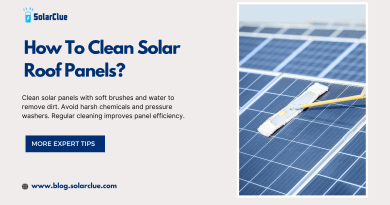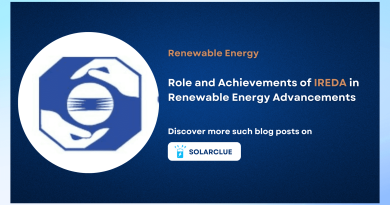How Are On Grid Solar Rooftop Plants Beneficial For Discom 3
The demand for clean, reliable, and sustainable energy has increased, and as a result, the use of solar energy has gained popularity. In recent years, on-grid solar rooftop plants have proven to be a significant part of the push to enhance clean energy sources. These plants are interconnected with the utility grid, allowing power to flow back and forth between the plant and the grid. This article explores how on-grid solar rooftop plants can be beneficial for Distribution Companies (Discom) 3 in achieving their goal of energy efficiency and stability.
Table of Contents
The Concept of On-Grid Solar Rooftop Plants
On-grid solar rooftop plants are distinct systems that generate solar energy and transport it to the grid. These systems do not include battery storage as they rely on the grid for a constant supply of power. On the days when energy production exceeds consumption, the surplus power is transferred back to the grid. On the other hand, during periods of low production, power is drawn from the grid. The seamless exchange of energy helps in efficient grid management, a critical concern for the Distribution Companies (Discoms).
Benefits of On-Grid Solar Rooftop Plants for Discom 3
The use of on-grid solar rooftop plants has several advantages for Discom 3. Below are some of the significant benefits:
Reduced Dependency on Fossil Fuels
On-grid solar rooftop plants primarily contribute to reducing dependence on fossil fuels for power generation. This shift towards solar power stimuli the green energy generation goals of Discom 3 and ensures a consistent electricity supply despite the fluctuations in fossil fuel availability and prices.
Economic Sustainability
The adoption of on-grid solar rooftop plants is financially viable. The cost of installing these systems is continuously decreasing due to technological advancements, making solar energy a more affordable option. This trend reduces the financial burden on Discom 3 and ultimately leads to consumer savings in the long run.
Grid Stability
On a technical front, on-grid solar rooftop plants play a crucial role in maintaining grid stability. During periods of peak demand, these systems can channel excess power back into the grid, mitigating the risk of blackouts. The two-way flow of power between the plant and the grid also ensures a smoother load distribution, thereby enhancing the reliability of power supply.
Environmental Protection
Another significant advantage of on-grid solar rooftop plants is their contribution to environmental protection. Unlike conventional power plants, these systems do not emit greenhouse gases or have harmful effects on the environment. By promoting the use of on-grid rooftop plants, Discom 3 can align its operations with global sustainability objectives.
Conclusion
On-grid solar rooftop plants possess the potential to revolutionize the energy sector dramatically. For Discom 3, these systems present an opportunity to improve energy supply reliability, reduce operational costs, and contribute to a sustainable future. By investing in the installation of solar rooftop plants, the company can gain a competitive edge and contribute to a cleaner and greener environment. The way forward in the energy sector is to leverage renewable sources, and on-grid solar rooftop plants are a definitive step in that direction.



